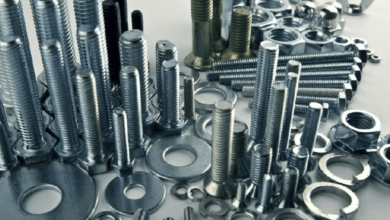CNC turning services: The Backbone of Modern Precision Manufacturing

In today’s fast-paced manufacturing environment, precision, efficiency, and consistency are more than just desirable—they’re non-negotiable. Whether you’re producing aerospace components, automotive parts, or custom medical devices, the ability to deliver high-quality results consistently can define your competitive edge. That’s why CNC turning services have become one of the most vital aspects of modern machining processes.
Computer Numerical Control (CNC) turning is no longer limited to large industrial firms. From startups to medium-sized production shops, companies across the globe are leveraging CNC turning services to meet their exact engineering specifications, reduce lead times, and increase scalability. This article will explore what CNC turning is, how it works, its advantages, and how businesses can benefit by outsourcing these services.
What Are CNC Turning Services?
CNC turning is a machining process that uses a rotating CNC turning services workpiece and a stationary cutting tool to remove material and shape the part into a desired form. The “CNC” part refers to the computerized control system that automates and precisely executes the machining process according to pre-programmed instructions (G-code).
CNC turning services refer to the professional machining services offered by manufacturing companies that specialize in this technique. These services are commonly used to produce cylindrical parts like shafts, bushings, screws, and rods, as well as components requiring tight tolerances and repeatable dimensions.
See also: Bi LED Lens Technology: The Future of Night Driving from the Best LED Headlight Brand
How CNC Turning Works
The process begins with a CAD (Computer-Aided Design) file that defines the part geometry. This design is then converted into G-code, a language that the CNC machine understands. Here’s a breakdown of the key steps in CNC turning:
- Material Loading: A bar stock or pre-cut blank is loaded into the lathe.
- Machine Setup: The operator installs the appropriate cutting tools and loads the G-code.
- Turning Operation: As the workpiece spins at high speed, the cutting tool removes material to create the desired shape.
- Finishing Passes: Additional passes are made to refine the surface finish or add threads, grooves, and tapers.
- Quality Inspection: Finished parts undergo dimensional and surface inspections to ensure they meet tolerances.
Most CNC turning services also offer secondary operations such as threading, drilling, knurling, and polishing to meet comprehensive project needs.
Industries That Rely on CNC Turning Services
The applications of CNC turning are virtually endless. Here are some of the industries that benefit most from these services:
🚗 Automotive
CNC turning is used to produce engine components, transmission shafts, wheel hubs, and more. High-volume production and tight tolerances are essential in this sector.
✈ Aerospace
Parts used in aircraft must meet the highest standards of precision and safety. CNC turning services produce components like landing gear parts, brackets, and valve stems with aerospace-grade materials.
🏥 Medical Devices
Medical manufacturers use CNC turning to create surgical instruments, implants, and diagnostic equipment components that require biocompatible materials and flawless finishes.
🏭 Industrial Equipment
Machinery used in factories and energy sectors includes thousands of turned parts—everything from valve bodies to hydraulic fittings and spindles.
💡 Electronics
Small, intricate parts such as connectors, pins, and housings for circuit boards are often made through high-speed CNC turning processes.
Advantages of Using CNC Turning Services
Businesses choose to outsource to professional CNC turning services for a variety of reasons. Let’s explore the most compelling benefits:
✅ Precision and Consistency
Thanks to computer control, CNC lathes can produce thousands of identical parts with minimal variation, meeting tight tolerances down to microns.
✅ Efficiency and Speed
CNC machines can operate 24/7, drastically reducing lead times. Tool paths are optimized in software, which minimizes waste and increases throughput.
✅ Cost-Effectiveness
Although the initial setup for CNC turning can be high, the cost per part drops significantly for medium and large production runs. Outsourcing also eliminates the need to invest in expensive equipment.
✅ Versatility
Modern CNC lathes can work with metals (aluminum, steel, titanium), plastics (nylon, PEEK), and composites. They can also handle a wide range of geometries and sizes.
✅ Scalability
Need to scale from prototype to production? CNC turning services allow businesses to easily adjust order quantities without compromising quality.
Customization and Flexibility in CNC Turning
One of the most overlooked advantages of professional CNC turning services is the level of customization they offer. Many manufacturers can adapt the process to suit your unique application:
- Custom toolpaths for unusual shapes
- Multi-axis turning for complex geometries
- Material consultation to match strength, weight, and thermal properties
- Batch flexibility, whether it’s a single prototype or a run of 100,000 units
This flexibility allows engineers and designers to experiment, iterate, and eventually move to full-scale production with confidence
Choosing the Right CNC Turning Partner
If you’re looking to outsource, not all CNC turning services are created equal. Here are some key criteria to help you find the right partner:
🔍 Experience and Expertise
Choose a company with a solid track record in your industry. Familiarity with specific materials or part requirements can save both time and money.
🛠 Equipment Capabilities
Ask about the types of CNC lathes and secondary operations they support. Do they offer live tooling? Can they handle both small and large diameters?
🧪 Quality Assurance
Your partner should have robust quality control processes including ISO certification, in-process inspections, and final part reports.
🔁 Lead Time and Communication
Fast turnaround and clear communication are essential, especially during revisions or scaling. Choose a company with transparent pricing and production schedules.
🧾 Prototyping and Design Support
Some CNC turning services offer design-for-manufacturability (DFM) support, helping you refine your part design to optimize cost and production.
Future Trends in CNC Turning Services
As with all tech-driven industries, CNC turning services are evolving rapidly. Here’s what to expect in the coming years:
- AI-assisted toolpath optimization
- Digital twin simulation before production
- Eco-friendly machining with minimal coolant use
- Industry 4.0 integration for real-time machine data tracking
- Hybrid machines combining milling and turning
These innovations will make the CNC turning process even more precise, sustainable, and responsive to the needs of future industries.
Final Thoughts
In the world of advanced manufacturing, CNC turning services stand out as a reliable, efficient, and precise method for producing parts that matter. Whether you’re creating a custom prototype or running large-scale production, the right service provider can offer the technology, expertise, and scalability your business needs.
By choosing a capable partner and understanding the full scope of what CNC turning can do, companies across all industries can bring high-quality products to market faster and more cost-effectively than ever before.




